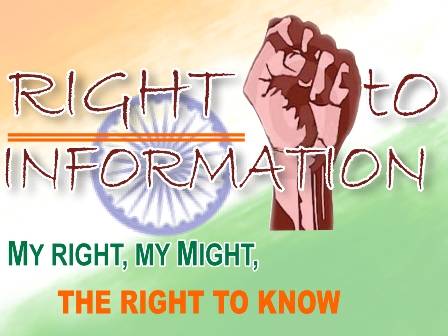Table of Contents
RIGHT TO INFORMATION
FREEDOM OF INFORMATION 2002
Freedom of information in the normal course means that a person can get information from wherever it is available but it does not compel the other person to provide information.
Freedom of information act 2002, entitles every citizen to have excess to information control by public authorities. Under this act, it is obligatory upon public authorities to provide information and maintain records with its operational needs. These records would have to be duly catalogues, indexed and publish at such intervals as may be prescribed by the appropriate government or the component authority.
Object and purpose of act
The object of the act is to promote transparency and accountability in the accountability in the administration and to provide effective and responsive government.
EXTENT
The act extent to whole India except Jammu and Kashmir.
OBLIGATION OF PUBLIC AUTHORITIES
Section 4 of the act provides obligation on public authorities to maintain and publish all relevant information concerning its important decision and to policies and also give reason for its decision.
APPOINTMENT OF PUBLIC INFORMATION OFFICERS
Section 5 of the act provides for the appointment of public information officers.
REQUEST FOR OBTAINING INFORMATION
Section 6 provides that a person who intends to obtain information is to make a request in writing or through electronic means to concerned public information officers specifying the particular of the information sought by him.
DISPOSAL OF REQUESTS
Every public information officer shall deal with request for information and shall render assistance to any person seeking such information when request is received.
Request should be in 30 days, reject the request for any reason specified in section 8 and 9.
RIGHT TO INFORMATION ACT, 2005
The government of India resolved that in order to ensure greater and more effective access to information, it is necessary that the freedom of information act 2002 must be made progressive and meaningful. It was decided to repeat the freedom of information act, 2002 and enact another law for providing an effective framework for effectuating the right recognized under article 19 of the constitution. This bill was passed by the parliament on 15 June 2005 and which came into force from 13 October 2005.
WHY THERE IS NEED FOR RIGHT TO INFORMATION?
Madison meant that the essence of democracy is the rule by the people. But democracy in most of the country is a “procedural” facade as has been observed by UNDP
It can be assumed that the ideal of the government by the people presuppose that the people have access to information on the matter of public concerns. Secondly RTI creates condition for ‘open governance’ which is the foundation of democracy. Thirdly, RTI is an investment of people trust in government which is real basis of democratic governance. It helps the quality of overall government as cutting edge level becomes much more authentic when people participate directly and observe at first-hand how government functions in reality.
EXTENT
The RTI, 2005 extends to the whole of India except state of Jammu and Kashmir and act applies to all public authorities and government instrumentalities.
Case name: Girish Ramachandra Deshpande vs. Central Information Commission & ors. (Supreme Court, 2012)
In this case, the Apex Court had held that the details disclosed by a person in his income tax returns are “personal information” which stand exempted from disclosure under of Section under 8 of RTI unless involves a larger public interest and the Central Public Information Officer or the State Public Information Officer or the Appellate Authority is satisfied that the larger public interest justifies the disclosure of such information.
Aabid Hussain v. CPIO, Jabalpur
In this case of October 2017, the CIC took a strong note of delay in RTI response by the concerned Department. The CIC remarked as under:
Commission takes grave exception to the flagrant violation of the RTI Act by the CPIOs of Cantonment Board, Jabalpur and the ignorance of the present CPIO about the pending RTI Applications from the tenure of her predecessor. It is incumbent upon the present CPIO to deal with all such pending RTI Applications and not wait for the Commission to issue notice of hearing to provide reply to RTI Applicants.
Author: kanika panwar,
IDEAL institute of management and technology & school of law, 2nd year/BALLB

